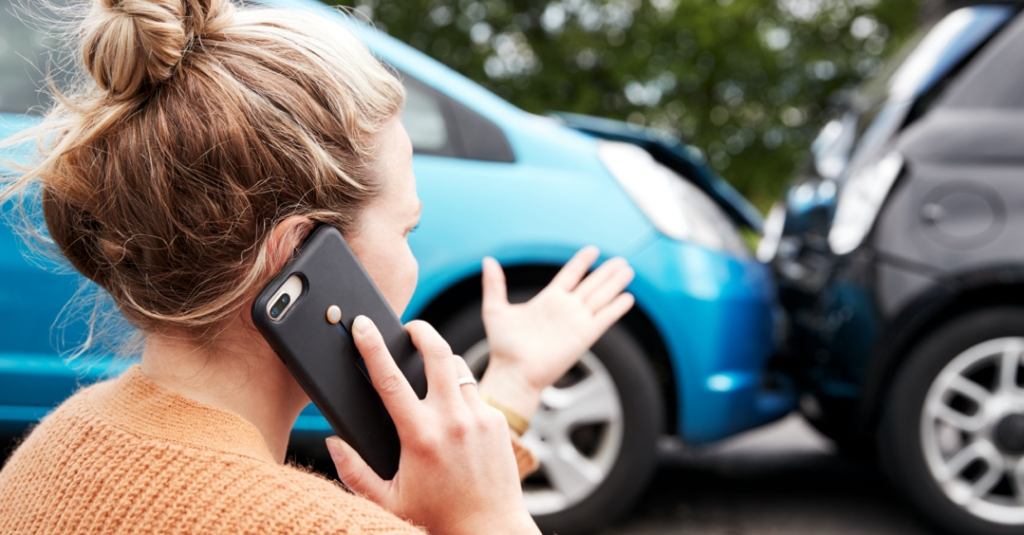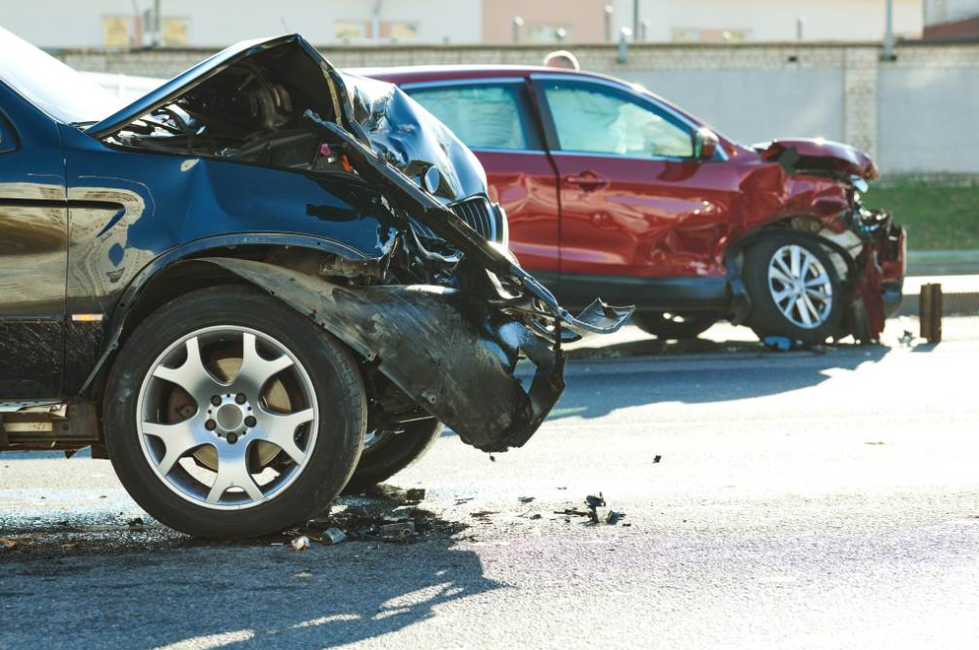You’ve been in a car accident. Now what? Here are 10 steps you should take after an accident.

A car accident can be one of the most traumatic and stressful times in your life – and the months and years that follow can be just as stressful. These are 10 important steps you can take to make sure you get the right support and treatment, and are fully compensated for your injuries. At Fidelis, our personal injury lawyers will be there to guide you through each step of the process.
1. Take action at the scene of the accident
The moments directly after a car accident can be overwhelming, and it’s important to give some forethought to what you would do if you had the misfortune of being in one in order to protect yourself and your interests. There are a few things you can do immediately following an accident to make sure everyone is safe and that your full legal rights are protected later on:
- Assess whether you or anyone involved needs medical assistance. Your very first thought should be the safety of everyone involved. If someone is injured, call an ambulance rather than trying to move them unless they are in imminent danger.
- Take photos of the scene. The position of the cars on the road, broken glass, and debris can all be important indicators of what happened and whose fault it was. Before moving the vehicles, take pictures of these things. Be sure not to block traffic or put yourself anywhere unsafe while you’re doing this.
- Move the vehicles involved out of traffic. Make sure that no other accidents are caused by an obstruction in the road. If the vehicles are too damaged to move, turn on the 4-way flashers. This is for your safety as well as that of other drivers.
- Call the police. If the damage values more than $1000, it is legally required that you report it to the police. Remember: cars are expensive and damages add up quickly. What appears minimal could very easily be more significant than you think.
- Get the other driver’s contact information. This includes full name, licence number, date of birth, address, licence plate, insurance provider and policy number. Keep a pen and paper in your car so that you are always prepared for this step.
- Do not admit fault. It might sound insensitive, but you could affect your legal rights by saying the accident was your fault. It’s best not to assume blame. The determination of fault involves many things that might not be evident at the moment and should be done by professionals.
- Get contact information from any witnesses. There are probably people around who saw what happened. Get their information right away because it might be very difficult or impossible to find them again later.
- Stay civil. No one intends to be involved in a car accident. You’ll feel many strong emotions after the accident, but try to remember that the other driver is experiencing the same thing and treat them with civility.
2. See a doctor
Make sure you take care of yourself! If you feel pain, take the time to see a doctor and follow their advice for treatment. Lawsuits take time, and it’s often necessary to wait several months to see how your injuries heal before moving ahead with the next step. Your job is to focus your time and energy on recovering from your injuries, and your personal injury lawyer will take care of the rest.
- Listen to your doctor. He or she knows what treatment or activities will be best for your particular injuries. You should follow their recommendations and advice, and always make sure to discuss your symptoms and limitations.
- Go to treatment. Going to your treatments, whether they are with a chiropractor, a physiotherapist, massage therapist, psychologist or any other provider, is extremely important.
- Take your medication. Another part of following your doctor’s advice, the right medication can help you heal more quickly and more completely. It can be a process to find the right one, however, so don’t hesitate to talk to your doctor about any side effects so he or she might suggest something that could work better for you.
- Listen to your body. This is a good rule in general because only you know what causes you pain or difficulty. If your pain gets worse or lasts longer after a certain activity, discuss your options with your doctor and your employer.
- Document your injuries. It is a best practice to take pictures of your injuries – this can include bruising, bleeding, swelling, scrapes and lacerations, bandages that are required, and more. Document your injuries as soon as possible after the accident.
- Keep a record of your care and health. Keeping a meticulous timeline of your care, treatments, and symptoms will be useful for your personal injury lawyer as your legal case progresses. The entire process can be long, and it is sometimes easy to forget what a doctor said or what symptoms you were feeling many months or even years ago. You can keep a record of your symptoms and your care on your computer or in a notebook. Each day, keep track of the symptoms you are experiencing and how your injuries may be limiting you in your day to day life. Each time you speak with your doctor or a treatment provider, record the date and a brief overview of the appointment and their treatment recommendations.
3. Communicate with your employer
This is another area where your doctor can help guide you. If he or she thinks you are able to work, go to work, but don’t strain yourself so you make your injuries worse or delay your healing. If your doctor has placed you off work, or given you restrictions on what you cannot do, be sure to let your employer know before your next scheduled day of work.
If your doctor advises you not to go to work or not to do a certain activity, ask for a note to give your employer. Communication can make all the difference when it comes to keeping good relationships with everyone involved in your healing.
It’s important that your doctor states on the prescription note that you are off-work or require certain treatments due to your accident-related injuries.
4. Contact a lawyer
One of the best decisions you can make after a car accident is hiring an experienced and reputable lawyer who focuses on personal injury law and car accidents, like the lawyers at Fidelis Law. It’s best to get in touch with us as soon as possible after your accident. Only a lawyer can explain your rights and give legal advice about your particular situation.
We offer free consultations, so your first meeting with one of our accident lawyers will cost you absolutely nothing.
5. Open a claim with your insurance company
You have a duty to notify your insurance company within 30 days of your accident or as soon as possible if you intend to make a claim. Even if you miss this 30 day window, you can still file a claim and a personal injury lawyer will be able to help you with this.
6. Be wary of the other driver’s insurance
The other driver’s insurance company is not your friend, and you have no obligation to speak with them. You should refer the adjuster to your lawyer rather than speaking with them directly. Contact a lawyer before communicating with the other driver’s insurance company, and don’t sign any forms without seeking a personal injury lawyer’s advice.
7. Open claims with other insurers
If you have short term disability, private health insurance, or are entitled to EI sick benefits, you should open claims with them right away. This may seem like a daunting task, but your Fidelis lawyer will help guide you through this process to make it as seamless as possible.
8. Keep your receipts
Always be sure to keep every one of your receipts. Your insurer will pay for your recommended treatments when you submit these receipts. This includes receipts for mileage, medications, treatment fees, and more. Your accident lawyer will be able to guide you on which specific receipts you will need to submit and how to submit them.
9. Follow your doctor’s treatment plan
Your health is of utmost priority. Throughout your entire claim process, it is important that you continue to follow your doctor’s treatment plan and recommendations.
10. Try not to worry.
Easier said than done, right? Lawsuits can take time and it will seem even longer if you worry about what is happening or not happening with the legal process. Keep communication open with your personal injury lawyer. At Fidelis, our team of accident lawyers and paralegals is dedicated to you and has experience with car accident claims. You can trust that we know what we are doing and will take good care of your interests.

